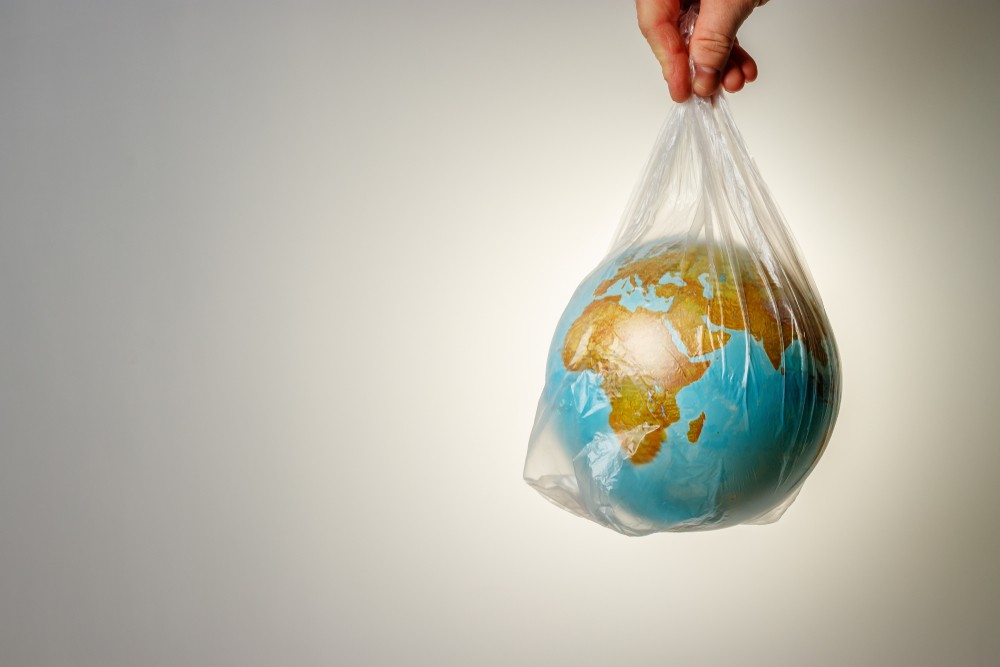Popular Reads
Top Results
Can't find what you're looking for?
View all search resultsPopular Reads
Top Results
Can't find what you're looking for?
View all search resultsMicroplastics have entered our bodies via food chain: Scientist
LIPI marine scientist Reza Cordova explained recently that up to 89 percent of anchovies, fished in Indonesian waters, have been contaminated by microplastics, with up to 1.5 particles being found in every gram of anchovies.
Change text size
Gift Premium Articles
to Anyone
A
recent study conducted by the Indonesian Institute of Sciences (LIPI) has revealed that microplastics have polluted every part of the country’s ocean, and are being ingested by marine animals that are eaten by humans. In other words, microplastics are entering our bodies through the food chain.
LIPI marine scientist Reza Cordova explained recently that up to 89 percent of anchovies, fished in Indonesian waters, have been contaminated by microplastics, with up to 1.5 particles being found in every gram of anchovies.
This indicates that all marine biota in Indonesian waters had ingested the particles as well. Microplastics refer to particles ranging from 5 millimeters to 100 nanometers in diameter.
Reza added that every Indonesian was expected to ingest up to 1,500 microplastic particles within a year when consuming marine animals. However, scientists have yet to find the health implications of consuming plastic.
“We can’t say yet that consuming microplastics is harmful to a person’s health, but it is harmful to certain marine biota,” he said recently, adding that more studies needed to be done to find the answer to that question.
A study by the University of Exeter in the United Kingdom found that microplastics have an impact on lugworms and other tiny marine animals that were important sources of food for other animals.
“Ingesting the tiny particles can prevent animals, including lugworms, from consuming their natural prey -- leading to starvation and even death,” said the study.
Microplastics usually come from the fragments of larger plastic items that have broken down in the natural environment.
Indonesia was known as the second biggest marine polluter in the world, after China, for channeling around 1.29 million tons of plastic waste into the ocean per year, a 2016 study led by Jenna Jambeck from the University of Georgia revealed.
LIPI’s study, conducted early last year, showed the number to be between 100,000 and 400,000 tons per year. However, this proves that plastic waste -- as the source of microplastics -- is still floating freely in the ocean.
Reza, therefore, called on all relevant parties to manage plastic waste properly so it would not leak into the environment, saying he was aware that a large number of residents in the country still threw their domestic waste, which also contains plastic, into rivers.
Separately, Environment and Forestry Ministry data revealed that up to 30 percent of plastic waste produced in the country was illegally dumped and would eventually end up in the ocean. Only about 10 percent is being recycled, while the remaining 60 percent is buried in landfills.
The ministry’s director general for waste management, Rosa Vivien Ratnawati, said the government was stepping up efforts to increase plastic waste management by developing more waste banks -- collecting points for non-organic waste like plastic and paper -- in the regions.
Up until know, around 5,244 waste banks have been established in 218 cities and regencies across the country. The facilities have succeeded in reducing plastic waste by 1.7 percent, claimed the ministry.
“We are now expecting a ministerial decree to regulate plastic production. So in the future, industries producing plastic will be in charge of managing waste either by cooperating with existing waste banks or by reclaiming the plastic from the public,” Vivien told The Jakarta Post.










